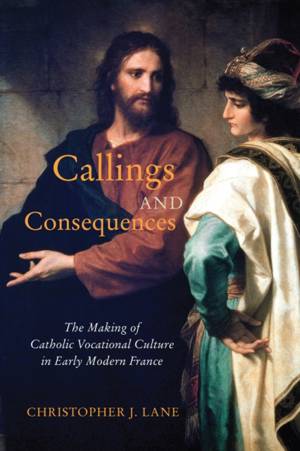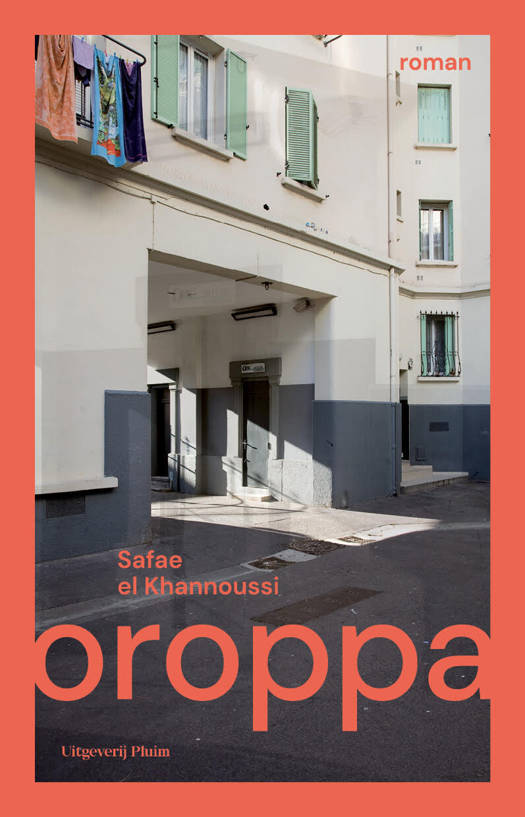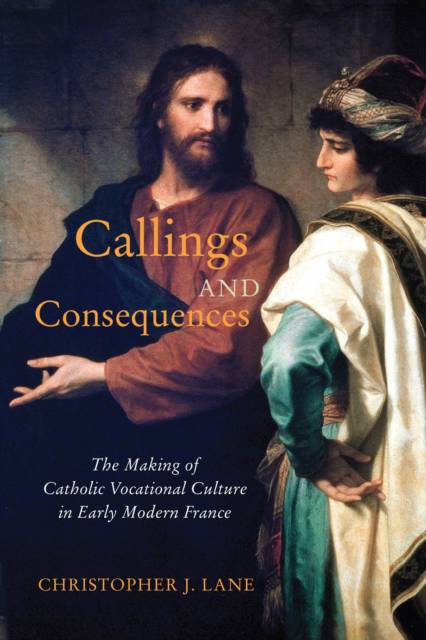
- Afhalen na 1 uur in een winkel met voorraad
- Gratis thuislevering in België vanaf € 30
- Ruim aanbod met 7 miljoen producten
- Afhalen na 1 uur in een winkel met voorraad
- Gratis thuislevering in België vanaf € 30
- Ruim aanbod met 7 miljoen producten
Zoeken
Callings and Consequences
The Making of Catholic Vocational Culture in Early Modern France Volume 91
Christopher J Lane
€ 170,95
+ 341 punten
Uitvoering
Omschrijving
The concept of vocation in an early modern setting calls to mind the priesthood or religious life in a monastery or cloister; to be "called" by God meant to leave the concerns of the world behind. Beginning in the mid-seventeenth century, French Catholic clergy began to promote the innovative idea that everyone, even an ordinary layperson, was called to a vocation or "state of life" and that discerning this call correctly had implications for one's happiness and salvation, and for the social good.In Callings and Consequences Christopher Lane analyzes the origins, growth, and influence of a culture of vocation that became a central component of the Catholic Reformation and its legacy in France. The reformers' new vision of the choice of a state of life was marked by four characteristics: urgency (the realization that one's soul was at stake), inclusiveness (the belief that everyone, including lay people, was called by God), method (the use of proven discernment practices), and liberty (the belief that this choice must be free from coercion, especially by parents). No mere passing phenomena, these vocational reforms engendered enduring beliefs and practices within the repertoire of global Catholic modernity, even to the present day.An illuminating and sometimes surprising history of pastoral reform, Callings and Consequences helps us to understand the history of Catholic vocational culture and its role in the modernizing process, within Christianity and beyond.
Specificaties
Betrokkenen
- Auteur(s):
- Uitgeverij:
Inhoud
- Aantal bladzijden:
- 200
- Taal:
- Engels
- Reeks:
Eigenschappen
- Productcode (EAN):
- 9780228008545
- Verschijningsdatum:
- 15/12/2021
- Uitvoering:
- Hardcover
- Formaat:
- Genaaid
- Afmetingen:
- 152 mm x 229 mm
- Gewicht:
- 399 g

Alleen bij Standaard Boekhandel
+ 341 punten op je klantenkaart van Standaard Boekhandel
Beoordelingen
We publiceren alleen reviews die voldoen aan de voorwaarden voor reviews. Bekijk onze voorwaarden voor reviews.











